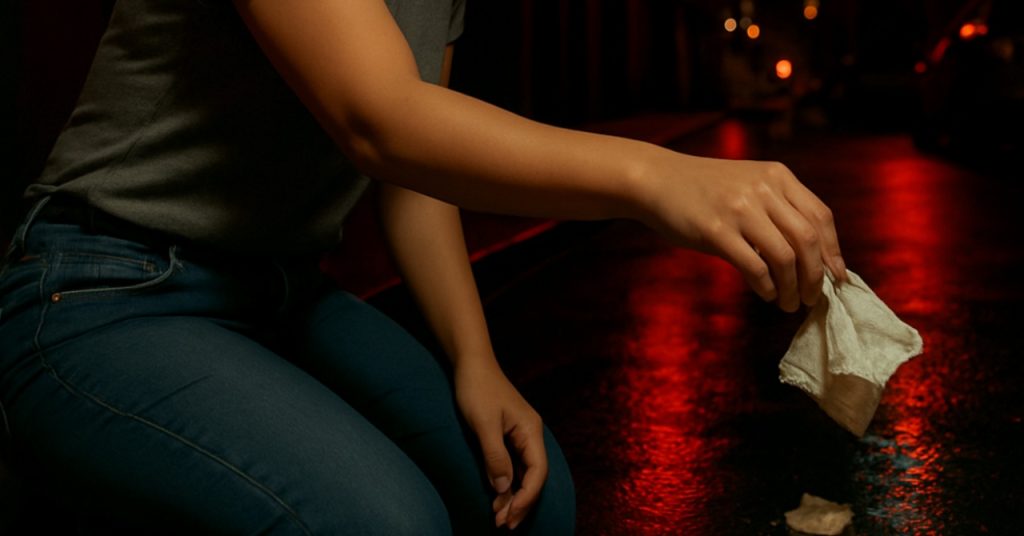Moving to Taiwan as an OFW brings exciting opportunities—but it also comes with cultural nuances that aren’t always spelled out. From waste management to how you greet someone, it’s the little things that can either help you blend in or accidentally stand out for the wrong reasons.
Here are nine common mistakes many of us make when we first arrive—and the small mindset shifts that can make a big difference.

Neglecting Taiwan’s Strict Waste Management
The Mistake: Tossing trash on the street, or failing to sort your garbage into recyclables, food waste, and general trash.
The Lesson: Taiwan takes cleanliness seriously. Get to know your neighborhood’s trash schedule—yes, there’s a melody that plays when the garbage truck arrives—and sort your waste accordingly. Carry trash with you until you find the correct bin. Treat recycling as a daily win, not a chore.
Disrupting Public Spaces
The Mistake: Eating or drinking on the MRT, speaking loudly on the phone, or pushing onto buses before people can exit.
The Lesson: Public spaces are shared sanctuaries here. Maintain a low voice in transit areas, step aside for others, and resist the urge to snack on-the-go. These unspoken rules of courtesy earn you respect and goodwill faster than you think.
Overlooking the Concept of “Face”
The Mistake: Calling someone out directly, especially in public or over small mistakes.
The Lesson: “Losing face” is a big deal. If something needs correcting, speak privately and use soft, indirect language—phrases like “Maybe we could consider…” go further than blunt honesty. It’s not about hiding the truth—it’s about preserving harmony.
Ignoring Gift-Giving Taboos
The Mistake: Gifting items like clocks, watches, or knives—which in Chinese culture symbolize parting or death.
The Lesson: Choose culturally appropriate tokens like fruit, snacks, or tea sets. And when receiving gifts? Use both hands. That simple gesture says: I see your effort, and I’m thankful for it.
Mishandling Greetings and Titles
The Mistake: Offering a handshake too quickly or addressing people by their first name right away.
The Lesson: In formal or new encounters, let the other person lead. Use surnames with honorifics like “Mr.” (王先生 – Wáng xiānshēng) or “Ms.” (陳小姐 – Chén xiǎojiě) until invited to speak more casually.
Dressing Inappropriately
The Mistake: Wearing tank tops to temples or short shorts to job interviews. Forgetting to remove shoes when signs clearly say so.
The Lesson: Respect is visual, too. Keep a more conservative wardrobe for workplaces and religious sites. If in doubt, dress simply and modestly—and always check for shoe-off zones!
Mishandling Chopsticks

The Mistake: Plunging your chopsticks upright into your rice bowl—something deeply associated with funeral offerings.
The Lesson: Rest chopsticks on the side of your plate or on a designated chopstick rest. It’s a small thing, but it shows mindfulness and cultural sensitivity at the dinner table.
Relying Solely on English
The Mistake: Expecting everyone to understand or prefer English, especially in markets or government offices.
The Lesson: Learning a few key Mandarin or Taiwanese phrases like “你好” (nǐ hǎo – hello) or “謝謝” (xièxiè – thank you) shows respect and effort. Even with an accent, people will appreciate your willingness to bridge the gap.
Accepting One-Dimensional Stereotypes
The Mistake: Staying within your comfort zone—often limited to other domestic workers or kababayans—and not showcasing your broader skills.
The Lesson: We’re more than our jobs. Join community events, take part in language exchanges, or volunteer. Let Taiwan see how diverse, talented, and adaptable Filipinos truly are.
Summary Table: Common Mistakes and Cultural Lessons
| Common Mistake | What to Do Instead |
| Improper waste disposal | Follow local schedules, sort trash properly |
| Noise or rushing in public transport | Speak softly, wait for others to exit |
| Calling people out in public | Handle issues privately and with indirect language |
| Giving clocks or knives as gifts | Offer symbolic gifts like snacks or tea; accept with both hands |
| Initiating handshakes or first-name use | Wait for them to lead; use surname + honorific |
| Wearing revealing clothes in temples | Dress modestly and check for shoe-off zones |
| Upright chopsticks in rice | Rest them neatly on the side or on a rest |
| Expecting English everywhere | Learn basic Mandarin or Taiwanese greetings |
| Limiting your social circle | Engage in diverse communities to expand your identity |
Frequently Asked Questions (FAQs)
- Do I need to memorize all the rules about Taiwanese etiquette?
Not at all. You don’t need to be perfect—just be observant and open to learning. Over time, respecting local norms becomes second nature, especially when you see how it improves daily interactions.
- Is it okay to speak Tagalog or Bisaya in public?
Yes, of course! Many Filipinos speak their native languages among friends. Just be mindful of volume, especially in quiet spaces like trains or waiting areas. It’s all about respect, not restriction.
- What should I do if I make a cultural mistake in Taiwan?
Stay calm and apologize sincerely if needed. A polite gesture or soft explanation often goes a long way. Taiwanese people generally appreciate effort and humility more than perfection.
- Do these cultural rules apply only in cities like Taipei?
Most etiquette guidelines apply island-wide, but some rural areas may be more relaxed or have local customs. When in doubt, observe how locals behave and follow their lead.
Final Reflection
Every misstep is a chance to grow. Embracing Taiwan’s cultural codes doesn’t mean giving up your Filipino roots—it means expanding your ability to connect, thrive, and be seen in your fullness.
So next time you catch the cheerful tune of a trash truck, bow slightly during a greeting, or get thanked for using both hands to receive a gift—you’ll know you’re not just surviving abroad.
You’re truly belonging.
